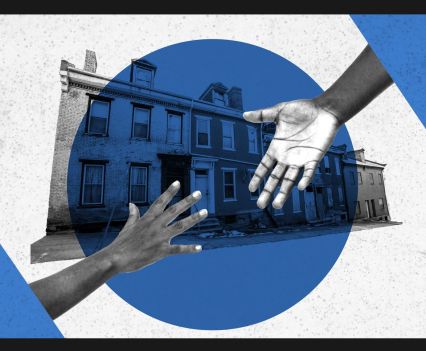



Organization
The Washington Post
Award
Excellence in Social Justice Reporting, Portfolio
Program
2021
Entry Links
Link 1
Link 2
Link 3
After the murder of George Floyd and protests throughout 2020, disagreements over the meaning and merit of “defunding the police” have been a major topic of discussion. But we’re thinking about public safety the wrong way, the Washington Post Editorial Board says in a project comprising seven editorials and more than a dozen perspectives from guest writers. Instead of just police reform, we need to reimagine public safety in America.
The editorials explore topics such as incident response, police unions and funding in neighborhoods. Editors commissioned opinion pieces to both accompany and respond to the editorials: Ten of those accompanying opinions published at the same time as the editorial package, and a half-dozen more published in the weeks following to keep the conversation going. Selected comments from those guest opinions were used as annotations on the editorials themselves, providing context from experts as readers got the Board’s perspective. Graphics — such as one showing the stark divide in the funding for the police department in Washington, D.C., vs. funding for violence prevention initiatives — and videos featuring people like Aqeela Sherrills — who lost his son to gun violence and is now director of the grassroots Newark Community Street Team — contributed to an immersive visual experience. Illustrations by Diana Ejaita tied the editorials together beautifully.
Editorial writer Emefa Addo Agawu, who led the reporting on this project, participated in a live chat with readers a week after initial publication to answer questions about the solutions proposed, as well as topics the Board didn’t cover in this project.
This entry includes the seven-part editorial, the live chat, and three guest opinions: “To stop the spike in urban violence, engage those most at risk” by Thomas Abt, a senior fellow with the Council on Criminal Justice and the author of “Bleeding Out: The Devastating Consequences of Urban Violence — and a Bold New Plan for Peace in the Streets”; “Women and girls must be at the center of reimagining safety” by Andrea James is founder and executive director of the National Council for Incarcerated & Formerly Incarcerated Women and Girls, founder of Families for Justice as Healing and author of “Upper Bunkies Unite: And Other Thoughts on the Politics of Mass Incarceration”; and “Why reimagining safety looks different in rural America” by Jasmine Heiss, director of the Vera Institute of Justice’s In Our Backyards initiative on smaller-city and rural incarceration, and Krishnaveni Gundu, the co-founder and executive director of Texas Jail Project.
The Online Journalism Awards™ (OJAs), launched in May 2000, are the only comprehensive set of journalism prizes honoring excellence in digital journalism around the world.
